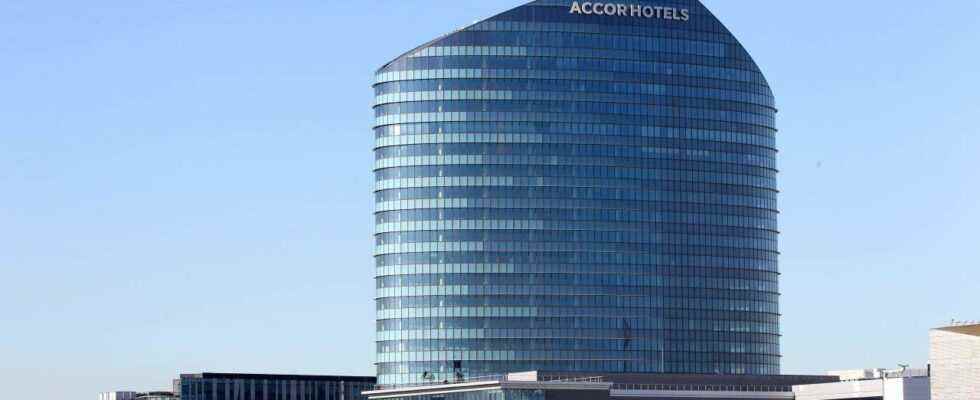(AOF) – Accor has entered into exclusive negotiations to sell a 10.8% stake in Ennismore (lifestyle hotels) to a Qatari consortium for a total amount of 185 million euros, including 20 million euros of financing in accordance with Sharia law contributed by Qatar First Bank LLC to the Qatari consortium’s investment vehicle. The contemplated transaction reflects an implied enterprise value to Ebitda valuation multiple of 18 times for 2023 for the combined Ennismore Group.
This transaction is indeed carried out on the basis of an enterprise value of Ennismore of more than 2 billion euros.
Following the transaction, Accor will retain a majority stake of 62.2% in Ennismore, with the remaining shares being held by Sharan Pasricha, founder and co-CEO of Ennismore, and new incoming investors.
Completion of the transaction is expected to occur in the second half of 2022 and is subject to employee consultation process, customary regulatory clearances and closing conditions.
AOF – LEARN MORE
Key points
– World’s leading hotel operator, created in 1967, with more than 40% of the market (excluding France, 1/3 of the market), leader in Asia-Pacific, Middle East-Africa and Latin America;
– Hotel portfolio of 5,300 hotels, i.e. 769,000 rooms in 100 countries, from luxury for 26% of revenues under the brands Fairmont, Pullman, Raffles, Sofitel, etc. to mid-range (34%) and economy Adagio, Ibis, Mercure , Novotel…;
– Activity of €2.2 billion balanced worldwide and divided into two major divisions, HotelServices for hotels owned by franchise or by management (72%) and HotelAssets for those owned as well as diversification in concierge services, rental of luxury residences or digital services for hoteliers, etc.;
– Economic model based on the reduction of capital requirements by “asset light” – sale of buildings and management control, by building loyalty and optimizing the model;
– Capital characterized by the presence of the Chinese hotel operators Jin Jiang and Huazhu (13% and 6.2% each), the Qatari fund QiA (11.3%) and the English Kingdom Hotels (9.21%), the founders retaining 1.43% of the capital, with a 12-member board of directors chaired by managing director Sébastien Bazin;
– Controlled financial structure with €4 billion in cash compared to €1.8 billion in net debt.
Challenges
– RESET strategy of recurring cost savings -200 M€ per year;
– Innovation strategy in the service of augmented hospitality ALL-Accor Live Limitless with a single platform concentrating the group’s offers, exploiting personal and commercial data to build customer loyalty;
– “Planet 21” environmental strategy: reduction in energy consumption, carbon action plan for a quarter of AccorInvest hotels, towards the elimination of single-use plastics, audit of 1/3 of suppliers, launch of the 1
er
“green loan”
– Benefits of the strategic partnership with the Chinese Huazhu Hotels Group, aimed at strengthening the Ibis, Mercure and Novotel brands in China, Taiwan and Mongolia;
– Pipeline increased to 1220 hotels;
– Acceleration of diversification in “lifestyle”, with the acquisition of 66.7% of Ennismore, financed by Accor Acquisition Cy.
Challenges
– Continuation of the rise in RevPar (indicator of hotel activity), still down by 49% in 2021 vs 2019, i.e. 42.3%, the return to pre-crisis levels being expected for 2024;
– Strong exposure to Europe which contributes nearly 40% of operating profit;
– 2022 objectives: acceleration of the return to profitability initiated in 2021 and restoration of the pre-Covid credit profile;
– Absence of dividend, its service being subject to the return to positive free self-financing.
Small amusement parks struggling
Declining turnover, investments to be made: these players are not getting their heads above water. These parks, which welcome 100,000 to 350,000 visitors per year, had to reduce their investments following the health crisis. But every year they invest between 10% and 20% of their turnover to create something new and attract new customers from a little further away and build loyalty. Many of these players, who have gone into debt to cope with the crisis, will soon have to repay their state-guaranteed loans (PGEs). At the end of the first year, companies can decide to reimburse their PGE immediately, amortize it over 1 to 5 additional years, or mix these two solutions. Faced with a period that it considers insufficient, the National Union of Leisure, Attraction and Cultural Spaces (Snelac) is asking that the EMP be transformed into investment aid for the sector or that it be extended to 15 years.
